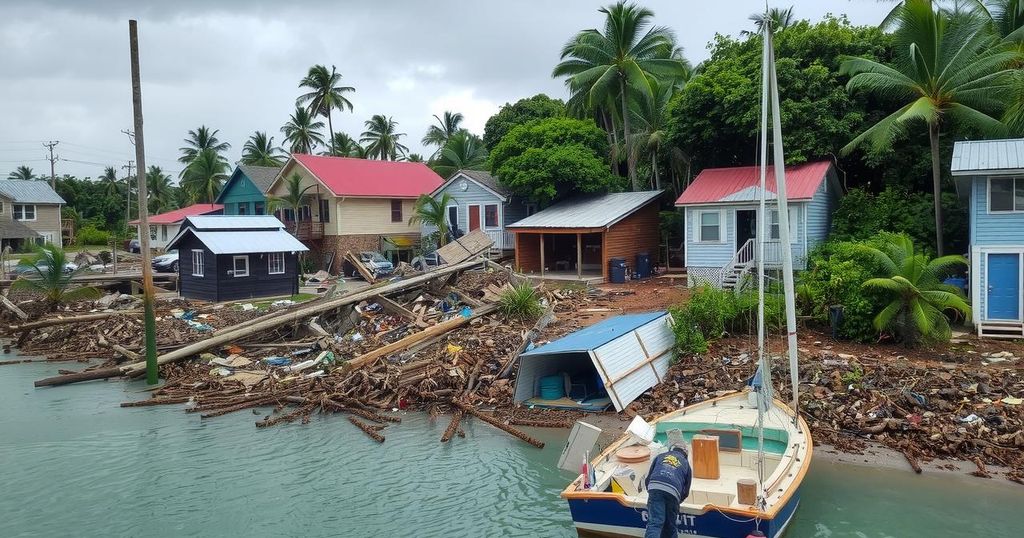Cyclone Chido Devastates Mayotte, Causing Significant Loss of Life and Damage

Cyclone Chido has significantly impacted Mayotte, a French territory, causing an estimated death toll of several hundred. With extensive infrastructure damage and reports of at least 11 confirmed fatalities alongside numerous injuries, the French government has initiated rescue efforts. The cyclone, classified as a category 4, wreaked havoc during its path through the Indian Ocean, prompting concern for the affected populations in surrounding regions.
The cyclone known as Chido has left severe destruction in Mayotte, a French territory in the Indian Ocean, where government officials estimate the death toll to be in the hundreds, potentially reaching into the thousands. As of now, at least 11 confirmed fatalities have been reported, alongside over 250 injuries, but these numbers are anticipated to rise significantly. The sequence of destruction began on December 14, 2024, with Chido bringing winds exceeding 220 kph (approximately 136 mph), resulting in extensive damage to infrastructure, including the airport, as well as numerous neighborhoods. Rescue efforts are underway, as France has mobilized military and emergency personnel to aid the afflicted population.
Mayotte, which is one of France’s overseas departments, is characterized by poverty and informal housing conditions. Its population struggles with socioeconomic challenges, which are exacerbated during natural disasters. Historical records suggest that Cyclone Chido is one of the most intense cyclones the island has faced in nearly a century. The cyclone also impacted surrounding regions, including Comoros and Mozambique, contributing to fears of subsequent humanitarian crises. In response to the disaster, French authorities are swiftly organizing food, medical support, and supply deliveries to the hardest-hit areas.
The cyclone’s aftermath has illustrated the vulnerability of Mayotte’s infrastructure, with entire neighborhoods reduced to rubble. Local officials emphasize the improbability of the confirmed death toll against the backdrop of widespread devastation witnessed across slums characterized by metal shacks. The urgency of the recovery effort is compounded by concerns regarding potential flooding and disease outbreaks in the wake of such disasters. Rescue operations are focused on restoring essential services such as electricity and sanitation in order to provide immediate relief to the beleaguered communities.
Cyclones pose a recurrent threat to regions in the Indian Ocean, particularly between December and March, a recognized cyclone season. Mayotte, located to the northwest of Madagascar, is notable for its socioeconomic difficulties despite being a French territory. The island’s infrastructure is particularly susceptible to severe weather events, which routinely result in catastrophic implications for local populations. Recent years have seen an increase in cyclone frequency and intensity, a phenomenon often linked to climate change. Previous cyclones, such as Idai and Freddy, highlight the dire consequences of these natural disasters, which include loss of life and subsequent humanitarian crises.
In summary, Cyclone Chido has wrought extensive damage in Mayotte, leading to a significant loss of life and injuries, with ongoing rescue and recovery operations being paramount. The widespread destruction of infrastructure necessitates immediate attention to restore essential services and support the local population. The situation is critical, requiring both domestic and international assistance to mitigate the impact of this disaster and prevent future occurrences from having equally devastating effects.
Original Source: apnews.com







